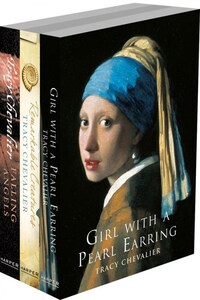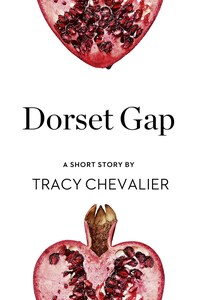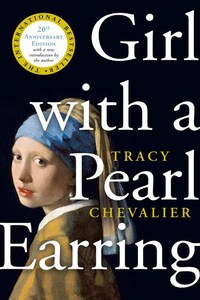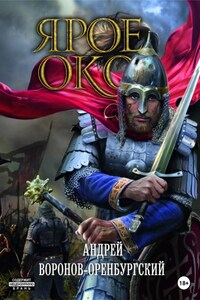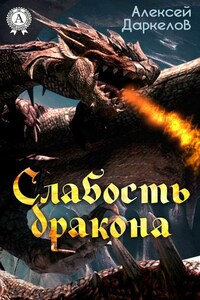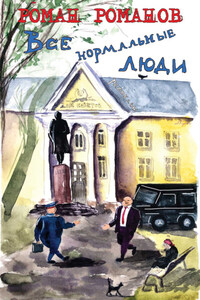The Borough Press
An imprint of HarperCollinsPublishers
77–85 Fulham Palace Road,
Hammersmith, London W6 8JB
www.harpercollins.co.uk
First published in Great Britain by Penguin Group 1997
Copyright © Tracy Chevalier 1997
Chapter head motifs © Neil Gower
Cover layout design © HarperCollinsPublishers Ltd 2014. Cover illustrations © Neil Gower
Tracy Chevalier asserts the moral right to be identified as the author of this work.
A catalogue record for this book is available from the British Library.
This novel is entirely a work of fiction. The names, characters and incidents portrayed in it are the work of the author’s imagination. Any resemblance to actual persons, living or dead, events or localities is entirely coincidental.
All rights reserved under International and Pan-American Copyright Conventions. By payment of the required fees, you have been granted the non-exclusive, non-transferable right to access and read the text of this e-book on screen. No part of this text may be reproduced, transmitted, down-loaded, decompiled, reverse engineered, or stored in or introduced into any information storage and retrieval system, in any form or by any means, whether electronic or mechanical, now known or hereinafter invented, without the express written permission of HarperCollins.
Source ISBN: 9780007241460
Ebook Edition © 2014 ISBN: 9780007324347
Version: 2014-08-05
As yellow is always accompanied with light, so it may be said that blue still brings a principle of darkness with it. This colour has a peculiar and almost indescribable effect on the eye. As a hue it is powerful, but it is on the negative side, and in its highest purity is, as it were, a stimulating negation. Its appearance, then, is a kind of contradiction between excitement and repose.
Goethe, Theory of Colours
Translated by Charles Lock Eastlake
She was called Isabelle, and when she was a small girl her hair changed colour in the time it takes a bird to call to its mate.
That summer the Duc de l’Aigle brought a statue of the Virgin and Child and a pot of paint back from Paris for the niche over the church door. A feast was held in the village the day the statue was installed. Isabelle sat at the bottom of a ladder watching Jean Tournier paint the niche a deep blue the colour of the clear evening sky. As he finished, the sun appeared from behind a wall of clouds and lit up the blue so brightly that Isabelle clasped her hands behind her neck and squeezed her elbows against her chest. When its rays reached her, they touched her hair with a halo of copper that remained even when the sun had gone. From that day she was called La Rousse after the Virgin Mary.
The nickname lost its affection when Monsieur Marcel arrived in the village a few years later, hands stained with tannin and words borrowed from Calvin. In his first sermon, in woods out of sight of the village priest, he told them that the Virgin was barring their way to the Truth.
—La Rousse has been defiled by the statues, the candles, the trinkets. She is contaminated! he proclaimed. She stands between you and God!
The villagers turned to stare at Isabelle. She clutched her mother’s arm.
How can he know? she thought. Only Maman knows.
Her mother would not have told him that Isabelle had begun to bleed that day and now had a rough cloth tied between her legs and a pillow of pain in her stomach. Les fleurs, her mother had called it, special flowers from God, a gift she was to keep quiet about because it set her apart. She looked up at her mother, who was frowning at Monsieur Marcel and had opened her mouth as if to speak. Isabelle squeezed her arm and Maman shut her mouth into a tight line.
Afterwards she walked back between her mother and her sister Marie, their twin brothers following more slowly. The other village children lagged behind them at first, whispering. Eventually, bold with curiosity, a boy ran up and grabbed a handful of Isabelle’s hair.
—Did you hear him, La Rousse? You’re dirty! he shouted.
Isabelle shrieked. Petit Henri and Gérard jumped to defend her, pleased to be useful at last.
The next day Isabelle began wearing a headcloth, every chestnut strand wound out of sight, long before other girls her age.
By the time Isabelle was fourteen two cypress trees were growing in a sunny patch near the house. Each time, Petit Henri and Gérard made the trip all the way to Barre-les-Cévennes, a two-day walk, to find one.
The first tree was Marie’s. She grew so big all the village women said she must be carrying twins; but Maman’s probing fingers felt only one head, though a large one. Maman worried about the size of the head.
—Would that it were twins, she muttered to Isabelle. Then it would be easier.
When the time came Maman sent all the men away: husband, father, brothers. It was a bitterly cold night, a strong wind blowing snow into drifts against the house, the stone walls, the clumps of dead rye. The men were slow to leave the fire until they heard Marie’s first scream: strong men, accustomed to the sounds of slaughtered pigs, the human tone drove them away quickly.

